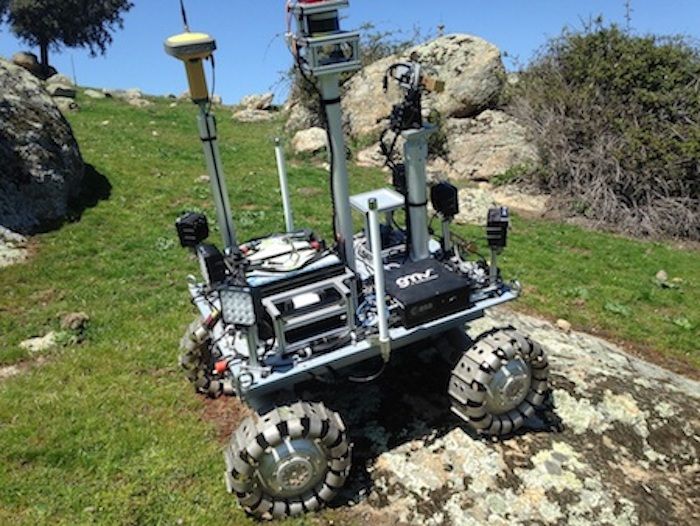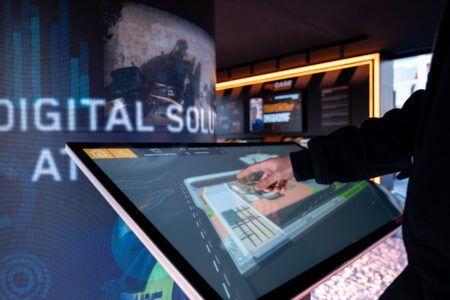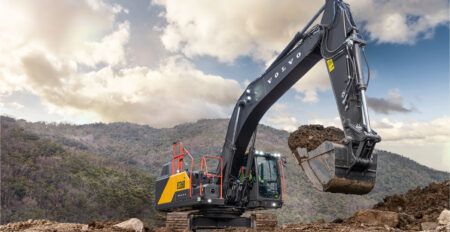GMV is field testing the European Space Agency’s (ESA) rover in preparation for a potential trip to Mars.
The prototype rover is being put through its paces at Colmenar Viejo, north of Madrid in Spain. The rocky Dehesa de Navalvillar region, famously the location for a number of Spaghetti Western films, was chosen by GMV, developer of planetary-exploration robotics systems, which is involved in ESA’s GOTCHA (GOAC TRL Increase Convenience Enhancements Hardening and Application Extension) project.
The project aims to achieve an autonomous framework for planetary-exploration robots, increasing their readiness for use in future space ventures, such as the joint ESA and NASA 2020 Mars Sample Return mission. Tests began in April and are continuing through May, with a focus on ensuring key Mars-exploration technologies are working and reliable when the time comes.
The 2020 project will see a sample-catching rover launched from Earth to collect samples from 2026 to 2028. In 2024 and 2026 additional spacecraft will be launched, to rendezvous with the orbital sample element, collect the surface sample and return to Earth.
Mariella Graziano, manager of GMS’s flight and robotics segment, said, “Although we can nowadays draw on a host of rover developments, training on Earth is still essential to ensure the success of projects of this type.
“One of the biggest challenges to be met in terms of improving planetary exploration, Mars in this case, and achieving rock- and soil-sample-return capabilities, is the development and demonstration of the technologies and capacities needed by any rover for making long runs and taking autonomous and independent decisions (without communicating back with Earth) on its progress, risk reduction and harnessing all science-information compilation opportunities that turn up.”





